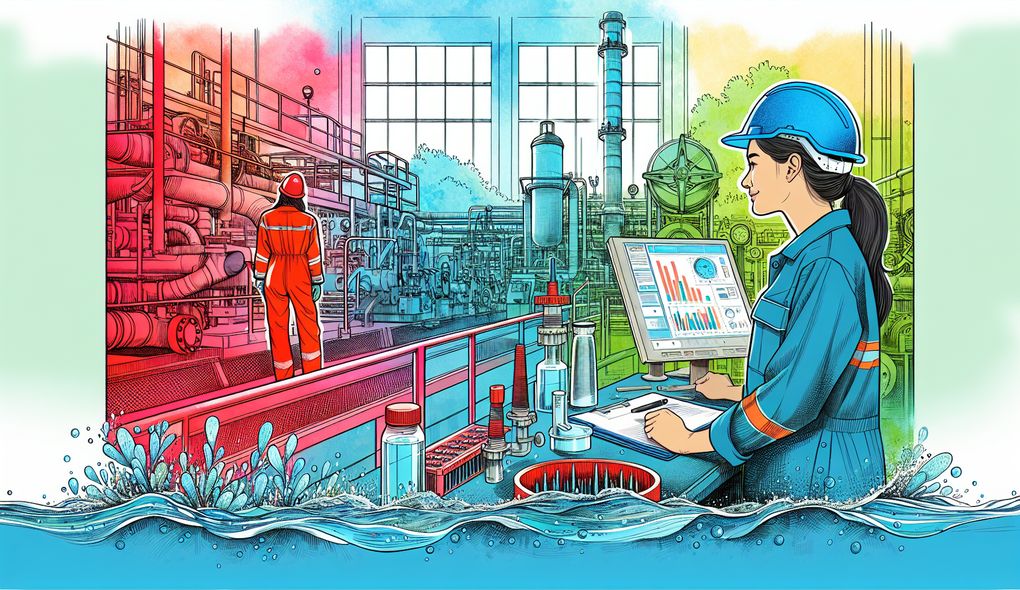How do you analyze and interpret hydrologic and hydraulic data and models?
SENIOR LEVEL

Sample answer to the question:
When analyzing and interpreting hydrologic and hydraulic data and models, I start by gathering all the relevant data and organizing it in a systematic manner. I use computer modeling software and data analysis tools to process the data and generate meaningful insights. I then compare the data with established standards and regulations to identify any gaps or areas of concern. Additionally, I collaborate with experts in the field to validate my findings and ensure accuracy. Finally, I communicate my findings through technical reports and presentations, making sure to tailor the information to different stakeholders.
Here is a more solid answer:
When analyzing and interpreting hydrologic and hydraulic data and models, I follow a systematic approach that involves several steps. First, I thoroughly review the data to understand its quality and source. Next, I use advanced analytical techniques and computer modeling software to process and visualize the data. This allows me to identify patterns, trends, and anomalies that may be present. I also leverage my proficiency in data analysis tools to perform statistical analysis and generate accurate predictions. To ensure compliance with environmental regulations, I compare my findings with established standards and guidelines. Throughout the process, I maintain clear and effective communication with team members and stakeholders through written reports and presentations. Additionally, I actively collaborate with experts in the field to validate my findings and gain further insights. This collaborative approach not only enhances the accuracy of the analysis but also promotes knowledge sharing and innovation.
Why is this a more solid answer?
The solid answer provides a more detailed and comprehensive explanation of the candidate's approach to analyzing and interpreting hydrologic and hydraulic data and models. It includes specific steps, techniques, and tools used by the candidate, demonstrating their proficiency in the evaluation areas mentioned. Additionally, it emphasizes collaboration and the importance of effective communication in the process. However, the answer could still benefit from providing specific examples or projects where the candidate successfully applied their skills.
An example of a exceptional answer:
Analyzing and interpreting hydrologic and hydraulic data and models is a multifaceted task that requires a deep understanding of the underlying principles and a holistic approach. I begin by conducting a thorough review of the data sources, ensuring their accuracy and relevance. To effectively analyze the data, I employ a combination of statistical techniques, such as regression analysis and time series analysis, and advanced computer modeling software, such as HEC-RAS and SWAT. These tools allow me to simulate and predict various hydrologic and hydraulic scenarios, helping me assess water availability, flood risks, and water quality. Additionally, I leverage my expertise in geographic information systems (GIS) to spatially analyze the data and visualize the results in maps and charts. To ensure compliance with environmental regulations, I stay updated on the latest standards and guidelines, integrating them into my analysis and interpretation process. Throughout my career, I have successfully applied these approaches in various projects, including watershed management, flood modeling, and water supply planning. By collaborating with interdisciplinary teams and stakeholders, I have been able to integrate diverse perspectives and develop holistic solutions to complex water management challenges.
Why is this an exceptional answer?
The exceptional answer provides a comprehensive and detailed account of the candidate's expertise in analyzing and interpreting hydrologic and hydraulic data and models. It demonstrates a deep understanding of the principles and techniques involved, as well as the candidate's proficiency in advanced computer modeling software and GIS applications. The answer also highlights the candidate's experience in applying their skills to real-world projects, showcasing their ability to solve complex water management issues. Additionally, the emphasis on collaboration and the integration of diverse perspectives further strengthens the candidate's suitability for the role. Overall, the answer provides a highly convincing narrative that aligns perfectly with the requirements and expectations outlined in the job description.
How to prepare for this question:
- Familiarize yourself with the principles and concepts of hydrology and hydraulics, including various data collection methods and modeling techniques. Stay updated on the latest advancements and tools in the field.
- Gain hands-on experience with computer modeling software and data analysis tools commonly used in water resources management. Practice analyzing and interpreting different types of hydrologic and hydraulic data.
- Develop strong analytical and problem-solving skills by working on projects that involve complex water management issues. Be prepared to discuss specific challenges faced and how you overcame them.
- Improve your communication skills, both written and verbal, as it is essential for effectively conveying your findings and collaborating with stakeholders. Practice presenting technical information in a clear and concise manner.
- Take initiative to collaborate with experts in the field and seek opportunities for professional development. Participate in conferences, workshops, and webinars to expand your knowledge and network with industry professionals.
What are interviewers evaluating with this question?
- Analytical and problem-solving abilities
- Verbal and written communication skills
- Proficiency in computer modeling software and data analysis tools
- Collaboration and leadership abilities
- Familiarity with environmental permitting and regulatory compliance

